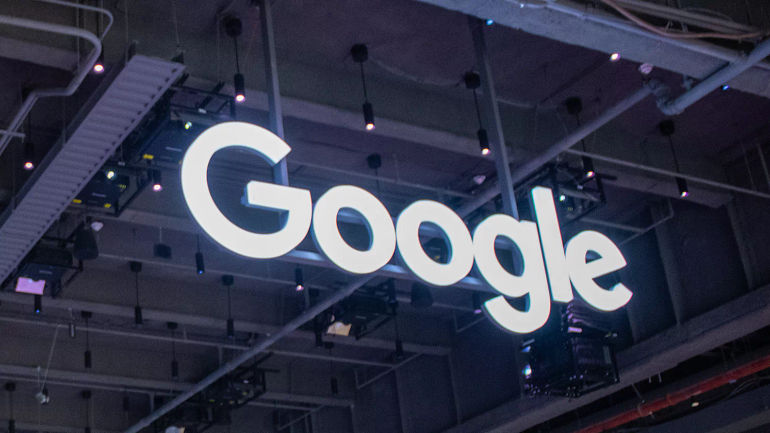
Google's Search Engine Facing Challenges: Navigating the 'New Reality'

Google's search engine faces challenges in the 'new reality' as timelines are accelerated, raising concerns over prioritizing revenue over quality, according to critics.
Google’s SVP overseeing Search, Prabhakar Raghavan, recently cautioned employees about a "new operating reality" for the company’s search division with limited resources, as reported by CNBC.
There are worries about declining revenue and user engagement metrics for Google’s main search product. The past few quarters have shown lower growth than anticipated in search queries and engagement.
The memo raises questions for SEO professionals and website owners about how Google changes could impact their strategies and online visibility.
Google’s Memo To Employees
During an all-hands meeting last month, Raghavan, the head of Google’s Search, Ads, Maps, and Commerce divisions, recognized the changing landscape in the industry away from the tech giant's previous dominance.
Addressing a crowd of more than 25,000 employees, Raghavan shared his insights:
Things have changed from how they were 15-20 years ago. We can all agree on that. Raghavan mentioned that Google needs to adapt due to increased competition and stricter regulations. Without directly naming competitors, the company is feeling the heat from Microsoft and OpenAI in the field of generative artificial intelligence.
He went on to explain that people choose to come to Google because of the trust they have in the platform. Even though there may be new gadgets available that catch people's attention, they still rely on Google to confirm the information they see, as it is considered a reliable source. This is especially important in today's age of generative AI.
Raghavan announced that he intends to reduce project deadlines for his team in order to improve the company's efficiency. He believes that quicker execution can lead to valuable lessons.
Google Search: From Ideals to Revenue Machine?
Some critics argue that Google’s current search struggles stem from misguided priorities and leadership missteps, not just external market forces.
Industry analyst Edward Zitron offers a new perspective on the issues facing Google's search engine. He suggests that the company intentionally lowered the quality of its main product in order to increase profits during the time of former ad executive Raghavan.
In 2019, Zitron referenced internal Google emails that reveal Raghavan, who was leading Ads at the time, initiated a rapid response plan called "Code Yellow" when Search revenues fell short of projections.
Zitron further claims that Google made the decision to reverse important quality enhancements to artificially increase engagement metrics. This included promoting websites that had been previously penalized for using spamming techniques.
Zitron mentioned that the emails reveal a compelling narrative. They discuss how Google's finance and advertising departments, under Raghavan's leadership and with CEO Sundar Pichai's approval, intentionally made changes to Google's operations that negatively impacted users in order to increase profits.
Zitron believes that there has been a shift away from ethical principles at Google, with the leadership team ignoring the company's original mission of delivering top-notch search results.
According to him, this shift paved the way for Raghavan's promotion to SVP of Search in 2020. This decision was made despite objections from veteran search chief Ben Gomes, who was moved to a different role after dedicating almost two decades to enhancing the product.
Zitron’s report reveals that Gomes, a key member of the original team responsible for the success of Google Search, was pushed out by a manager focused on growth named Prabhakar Raghavan, who was described as a management consultant pretending to be an engineer.
Zitron claims that under Raghavan's leadership, the search engine has become less reliable and transparent. It is overrun with low-quality content that is optimized solely for ranking purposes rather than meeting user needs.
Google has not yet addressed the allegations made in Zitron's report.
Implications for SEO Professionals & Site Owners
For those who are website owners and SEO professionals that pay close attention to Google's updates, the internal struggles within the company indicate the constant struggle of adapting to Google's ever-changing search criteria.
Sudden changes to a product can throw off your SEO strategies, whether it's due to financial reasons or a shift in philosophy.
Raghavan's mention of adapting to a "new operating reality" with quicker timelines hints that Google Search might be updating more often.
The spotlight on Google's algorithm and ranking systems shows how important it is to get things right when making big changes.
Google is always working on improving its products, and how well they can balance new ideas with keeping things reliable will determine what search will look like in the future.
Editor's P/S:
The article highlights the challenges faced by Google's search division as it navigates a changing operating reality marked by declining revenue and user engagement. The internal memo from Prabhakar Raghavan, SVP overseeing Search, raises concerns about the company's ability to maintain its dominance in the face of increasing competition and stricter regulations. It also sparks questions about the impact of Google's potential changes on SEO professionals and website owners.
The article also delves into criticisms leveled by industry analyst Edward Zitron, who alleges that Google intentionally lowered the quality of its search product to increase profits. Zitron claims that this shift in priorities has led to a decline in the reliability and transparency of the search engine. These allegations raise ethical concerns and emphasize the importance of balancing financial goals with the mission of providing users with accurate and relevant search results. As Google continues to adapt to the evolving landscape, it remains to be seen how it will address these challenges and ensure the longevity of its search product.











